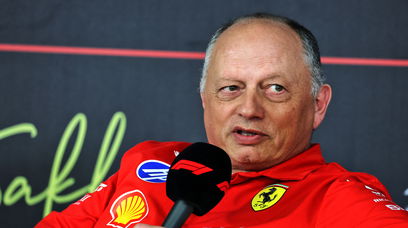Former racing driver Susie Wolff has hailed the impact that Drive to Survive has had on attracting a bigger and more diverse audience to F1. Now in its fourth season, the Netflix documentary hasn't always found favour within the F1 community, thanks largely to the selective nature of the series' editing. But Wolff, who is married to Mercedes Team Principal Toto Wolff, says the show has done much to increase F1's viewership among people with little to no prior interest in the sport. "[Drive to Survive] has done a great thing for F1, in that it's opened F1 up to a wider audience," Wolff said, when she appeared on the Beyond The Grid podcast. "I certainly see so many more young girls and women interested in the sport because of Drive to Survive. I think, formerly, the sport was seen as very technologically driven, whereas now there's more of a human element. "The drivers [usually] wear a helmet, so people don't get to see them a lot. Whereas, in Drive to Survive, you see the challenges of being an F1 driver, you see the pressure that these guys are under, so I think there are far more positives to come out of Drive to Survive than there are negatives."
What about the criticism aimed at the series?
Criticism of Drive to Survive has centred on the series being too stage-managed and portraying rivalries that don't exist in order to fit Netflix's chosen narrative. World Champion Max Verstappen notably revealed that he would not feature in the show's latest series, having criticised the filmmakers for "faking a rivalry" between himself and former Red Bull teammate Daniel Ricciardo during an earlier season. "I can understand the frustrations from certain people that the narrative has been spun in a different way," acknowledged Wolff. "But, in the end, we've got to be thankful as a whole that Drive to Survive has had a positive impact on the sport." The introduction of Drive to Survive has coincided with F1's push to increase the sport's popularity in the United States. More than 400,000 people attended the 2021 United States Grand Prix in Austin, up from 268,000 in 2019, and the country will have three Grands Prix from 2023 onwards, with Miami and Las Vegas joining the F1 calendar over the next two years.
Most read






